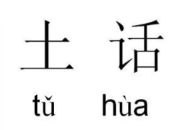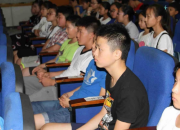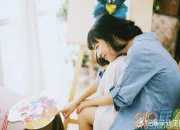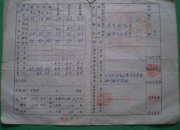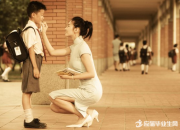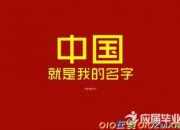幼儿英语水果教学课件
时间:2021-08-31幼儿英语水果教学课件1
话题:水果 fruit
句型:I like apples
单词:apple banana orange grape pear lemon
好句子: An apple a day keeps the doctor away.
时尚词:Apple Pay
巧记趣味一角:
1.apple-apply 申请苹果
2. grape-grade-ape猿猴等级葡萄
3.orange-change改变橘子
4.pear—bear 熊吃梨子
一、儿歌(1)
Apple come here happy birthday.
Banana come here happy birthday.
Grape come here happy birthday.
Orange come here never give up.
儿歌(2)
Do you like apples? Yes, I like apples.
Do you like grapes ? Yes, I like grapes.
Do you like bananas? Yes, I like bananas.
Do you like oranges? Yes, I like oranges.
Do you like apples.?Yes, I like apples.
Do you like apples.?Yes, I like apples.
二.拓展文化知识:
1:世界四大水果是什么?Apple banana orange grape 其中grape 是四大水果之首。
2:有趣的水果俚语: the apple of one's eye 掌上明珠
1. the Big Apple 纽约城
2. polish the apple 拍马屁
3. apples and oranges.风牛马不相及
5. top banana 大老板
6.a lemon 没有价值的商品.(The car is a lemon).
三.国文文化传承:
孔融让梨故事中英文:Kong Rong was smart in his childhood, studious, Zaisi agile, making phone calls, Clever Answer, we Doukua He is an odd child. 4-year-old, he has been able to recite many of Poetry, and understand rites, the parents love him.
One day, his father bought some pears, specially picked one of the biggest pears to the Kong Rong, Kong Rong shaking his head, but another one of the least of sorting the fatigue pears said: "I am the youngest, we should eat smaller pears, pear that you it gave my brother. "very surprised to hear her father. Kongrongrangli the story quickly spread Qufu, and has been handed down, many parents the education of their children has become a good example. 孔融小时候聪明好学,才思敏捷,巧言妙答,大家都夸他是奇童。4岁时,他已能背诵许多诗赋,并且懂得礼节,父母亲非常喜爱他。 一日,父亲买了一些梨子,特地拣了一个最大的梨子给孔融,孔融摇摇头,却另拣了一个最小的梨子说疲乏:“我年纪最小,应该吃小的梨,你那个梨就给哥哥吧。”父亲听后十分惊喜。孔融让梨的故事,很快传遍了曲阜,并且一直流传下来,成了许多父母教育子女的好例子。
四.励志文化故事传播:
The Banana Tree 香蕉树说明
Once upon a time
there was a single banana tree in the jungle.
Two bunches of bananas were on the banana tree.
There were three children from a village.
They were watching the bananas grow.
There were four monkeys from the jungle.
They were watching the bananas grow.
The children looked at the bananas at five o’clock in the afternoon everyday.
The monkeys looked at the bananas at six o’clock in the morning everyday.
The three children and the four monkeys were very excited.Soon the bananas would be ready to eat.
All seven of them wanted to eat the bananas.
One evening the children ran to the banana tree. There
were eight colorful butterflies sitting on the bananas.
The bananas were almost yellow.
“Let’s eat the bananas now.”
“No, they are not ripe.”
The next morning the monkeys looked at the bananas.
There were nine drops of dew sparkling on the bananas.
The three children ran to the bananas tree for breakfast.
The four monkeys swung from tree to tree to get to the banana tree.It was 10 o’clock. The monkeys and children wanted bananas for breakfast.
The children were very upset to see the monkeys.
The monkeys were very upset to see the children.
The children were very afraid that the monkeys would take all of the bananas.The monkeys were afraid that the children would take all of the bananas.
The children were very hungry. They were also very tired.
The monkeys were very hungry. They were also very tired.
The children were too tired to throw stones.
The monkeys were too tired to throw sticks.
“I’m so hungry.””Me too.”
“Let’s share the bananas with the monkeys.”
“OK!Let’s share the bananas with the monkeys.”
The monkeys and the children enjoyed their breakfast.
They also learned that sharing is better than fighting.
译文:
香蕉树
很久以前
在这片森林里面有一棵唯一的香蕉树。
香蕉树上有两串香蕉。
有三个来自山村的孩子。
他们正在观察香蕉的'成长。
有四只来自这片森林的猴子。
他们正在观察香蕉的成长。
孩子们在每一天下午六点钟看香蕉。
猴子们在每一天早上六点钟看香蕉。
这三个孩子和这四只猴子非常兴奋。
很快香蕉就快能吃了。
他们全部七个人都想吃香蕉。
一天傍晚孩子们跑到香蕉树。
八只色彩鲜艳的蝴蝶正落在香蕉上。
香蕉差不多成黄颜色了。
“现在让我们吃香蕉。”
“不,他们没有熟呢。”
第二天早上猴子们看到香蕉。
有九粒露水在香蕉上发光。
这三个孩子跑到香蕉树旁,把香蕉作为早餐。
这四只猴子从一棵树到另一棵树摇荡来到
香蕉树。十点钟了。猴子们和孩子们
要把香蕉当作早餐。孩子们看到猴子们感到
非常烦乱。猴子们看到孩子们感到非常烦乱。
孩子们非常害怕猴子们拿走所有的香蕉。
猴子们害怕孩子们拿走所有的香蕉。孩子们
很饿。他们也很疲倦。猴子们很饿。他们也
很疲倦。孩子们太疲倦了而不能扔石头。
猴子们太疲倦了而不能扔木棍。
“我很饿。”“我也是。”
“让我们和猴子们一起分享香蕉。”
“好的!让我们和猴子们一起分享香蕉。”
猴子们和孩子们享用了他们的早餐。
他们也明白了分享比争斗更好。
五:练习
练习:一:写出下面中文‘
1:the Big Apple 2.the apple of one’s eye 3. apple polisher 4.top banana.
二: 趣味接龙划线找单词
Bananappleye, orangeye applyes grapeyeggrape pearabbitopear
幼儿英语水果教学课件2
活动目标
生词 pear banana 。
听懂指令并且执行指令Take a pear/banana.
通过听英语短句增强语感。
4在游戏化的活动中愉快,积极主动地学习英语语言。
活动准备
木偶
单词卡片pear banana
许多孩子涂色制作的pear banana的小卡片
画一棵果树一面贴pear一面贴banana
活动过程
1、 通过TPR活动消除孩子的紧张感,自然地进入活动状态
kiss 教师和木偶用动作表示kiss,然后木偶和所有的孩子kiss一下,并要求孩子说kiss
shake 教师带领所有的孩子做滑稽的动作shake。
hop 教师带领孩子愉快地hop 。
教师一边做立正的动作一边说stop,边说 sit down, please.边带头坐上位,用手势指导孩子坐下。
2、新词 pear banana和指令Take a pear/banana
通过木偶与教师与孩子做“找一找的游戏” “打枪游戏” 学习新词 pear banana。
小木偶拿出一个梨子同时教师变声说pear。请孩子们集体说pear。
游戏:找一找 Finding
教师把pear藏在身后面,做找pear的样子。然后教师用手指在头边指一指画小圈,做动脑筋的样子。最后教师连喊三声pear pear pear,教师再把pear从身后高兴地举在头顶上。教师再把梨子藏在身后,把一只手放在嘴边一边不出声地用嘴唇说pear pear pear引导孩子读唇学说pear pear pear。教师走到孩子们面前玩1-2遍游戏。孩子说对了则拿出梨子和孩子逗着玩一下。
同样的方法学习 banana。
打枪游戏Shooting:将pear banana的卡片分别从身后突然出示教师引导孩子“叭”地打一枪然后说出这个词。
通过木偶与教师有趣的对话使孩子听懂指令并且执行指令Take a pear/banana.
【幼儿英语水果教学课件】相关文章:
3.数水果教学课件
7.幼儿英语教学课件


